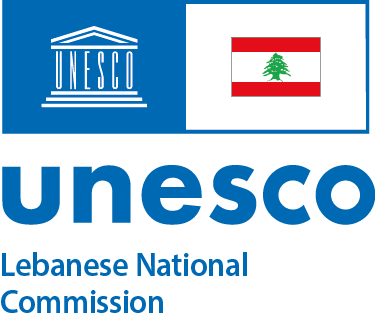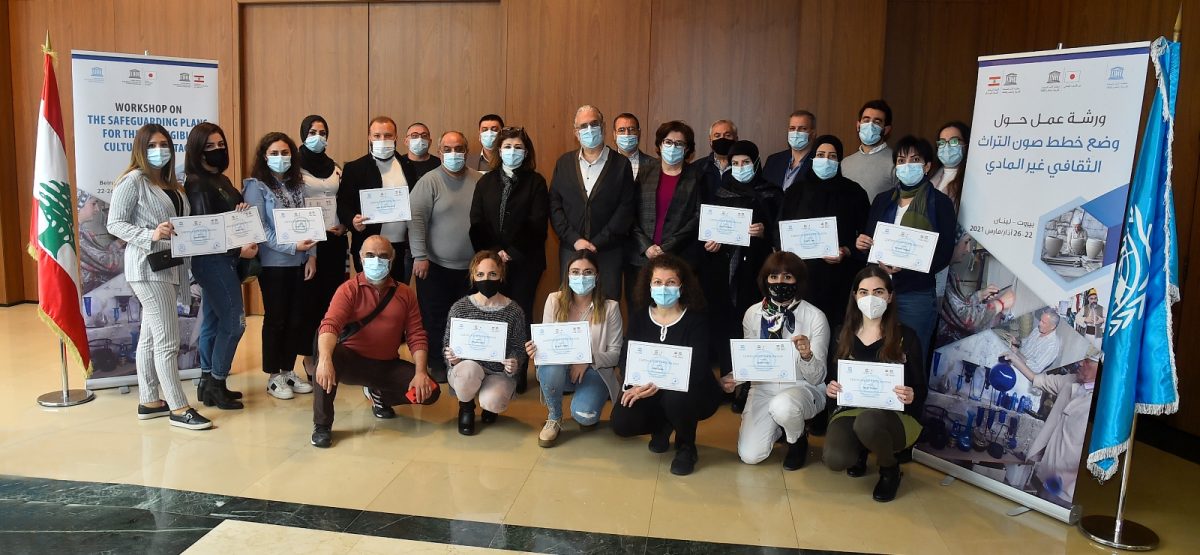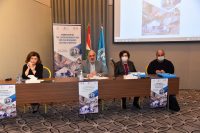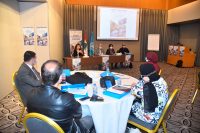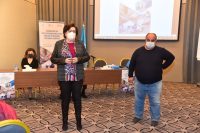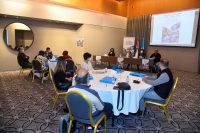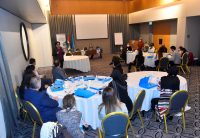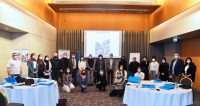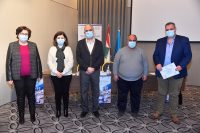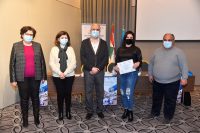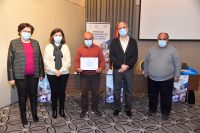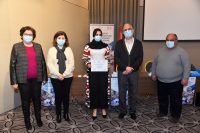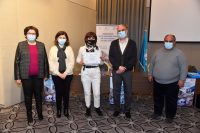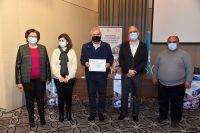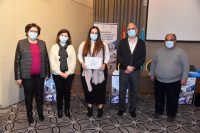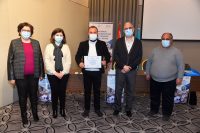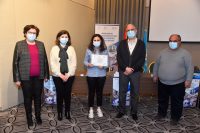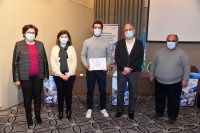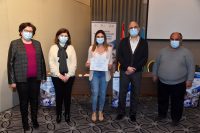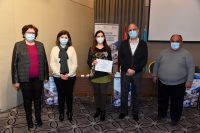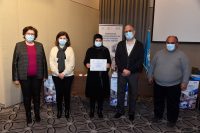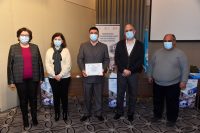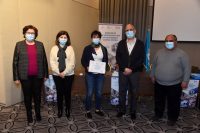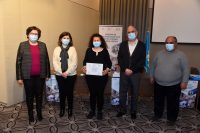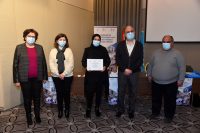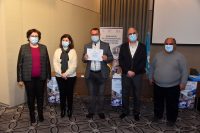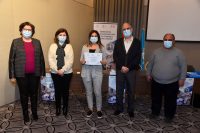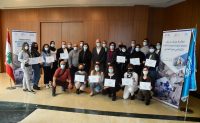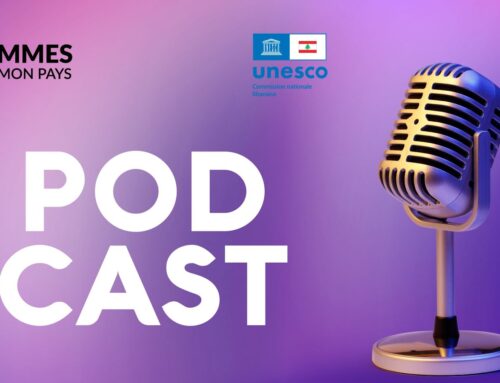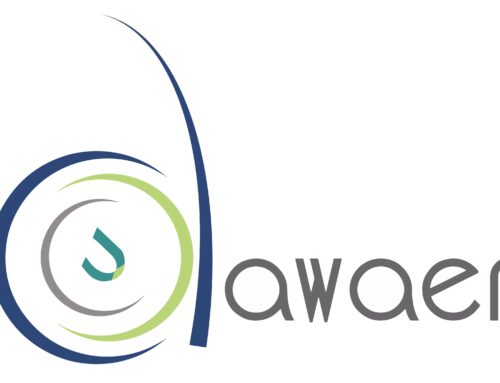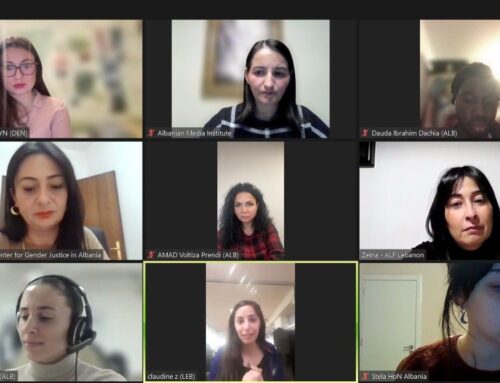The UNESCO Beirut Office and the Lebanese National Commission for UNESCO organized a 5-day capacity-building workshop on the elaboration of Safeguarding Plans for Intangible Cultural Heritage, at the Radisson Blu Hotel in Verdun, from March 22 to 26, 2021, after a long lockdown period due to the pandemic’s second wave.
The training workshop moderated by Dr. Annie Tohme Tabet and Dr. Jean Hajjar, brought together twenty participants representatives of ministries, universities, civil society and community bearers, who have been involved in the previous trainings on the safeguarding of ICH, with all health safety protocols strictly being applied regarding hand hygiene, social distancing and wearing masks. Participants, working in groups, did a review of the 2003 Convention’s principles and key concepts by small groups and established a list of ICH elements from their communities that might be taken as an example for a role-playing game similar to the Kassen scenario, and chose to develop safeguarding plans for “traditional soap making” and “traditional rug and carpet weaving”.
Speaking at the opening ceremony, Mr. Joseph Kreidi, UNESCO Beirut’s Programme Specialist for Culture, stressed that the elaboration of safeguarding plans for the intangible cultural heritage is one of the areas in which support is required, and in which UNESCO can more clearly intervene, especially since it contributes to the successful achievement of the Convention objectives. UNESCO has developed a large-scale global program for capacity-building through the mechanisms set up by the UNESCO General Secretariat to support the implementation of the Convention, and this capacity-building program is one of the most important mechanisms.
Deputy Secretary General of the Lebanese National Commission, Ms. Ramza Jaber Saad spoke of the importance of the rich and diverse intangible cultural heritage in Lebanon, and the necessity of inventorying, safeguarding and inscribing it in the Representative List of Intangible Cultural Heritage. “This workshop is a step forward in strengthening the capacities of the representatives of governmental and non-governmental institutions for the full implementation of the ICH Convention at the national level”.
“This workshop allowed us to continue the capacity building program started in 2019. Despite all the crises other than the pandemic that the country is going through, we have, once again, shown resilience. Moreover, this workshop is very useful in the context of the economic crisis. It can encourage local actors to initiate safeguarding plans related to development”, said Prof. Annie Tohme Tabet, UNESCO facilitator.
The emphasis in the workshop was on group dynamic and interactivity. The reconstitution of the scenario assigned to each participant a role of responsibility in the development of the safeguarding plan.
“The scenario exercises were excellent and interactive. We have succeeded in developing backup plans. Taking a specific role (scenarios) allows you to know all the aspects of the process of safeguarding an element of ICH, and its realistic challenges. The role play helped us to become more aware of the work context and the safeguarding of this heritage”, said Ms. Anna Hourani, a participant.
UNESCO co-facilitator, Mr. Jean Hajjar, said “After having lived this experience, I can confirm that it was one of the most beautiful moments of work and effort for me. The group was wonderful, the organizers were excellent and Prof. Annie Tohme Tabet (our forever trainer) proved to me once again that her presence among us is the greatest human and cognitive treasure at the same time”. “We hope that the capacity building program will continue in Lebanon despite the difficulties. The objective is to form a team of national facilitators likely to continue the implementation of the 2003 Convention and initiate projects to safeguard ICH”.
